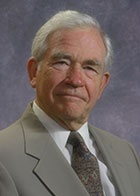
In the New York Times of Aug. 17, David Kirp tells us “there is no substitute for the personal element” in schooling and claims those who support school choice disagree with him. In his “Teaching Is Not a Business,” he scolds the entire parental choice movement as dominated by “marketplace mantras” that regard test scores “as the single metric of success.” He would have us understand that business competition and systematic testing exhaust the litany of arguments for choice and that these are impersonal forces.
Kirp, in my judgment, is correct to downgrade both scores and competition; they are important essentially as the instruments of the more central values thought to be served by parental autonomy. And, true, in arguing for choice, some economists have found little to say beyond hailing the market. I will suggest they have forfeited their best arguments. But, then, for Kirp to attribute their narrow vision to the mainstream of serious students and proponents of family authority is grossly misleading.
What is school choice really about? Like any other element of human freedom it is, before all else, an occasion of responsibility. It is specifically so for the parent; armed with constitutional authority, fathers and mothers must face up to the issue: where will Little Nell get her formal instruction? The parents must decide; but first they must probe and learn – they must act like responsible citizens. They will make mistakes and grow by them, because these decisions will affect their own future lives. They care about this child, not simply because she is theirs – though that is crucial – but because they have to live with the outcome.
The child observes such behavior, and that experience suggests the meaning of responsibility. Further, Nell grasps that, if the decision turns out painful for herself, she has an open mic at dinner and bedtime to plead her own case and maybe change schools. She gains confidence in the possibility of her own responsibility. There is a system; she is part of it; and it can work. She has discovered that she is a citizen.
Nell’s neighbor, Jim, for reasons of poverty, has no parent who is able to choose for him; he is conscripted for a school called “public.” He is called to learning by strangers who bear no long-term responsibility for his success. His parent and he are both helpless – for 12 years. Is this what Kirp means by “the personal element?” Does conscription serve the development of a “civic” attitude?
Step Up For Students and other such agents of change suppose that choice itself makes teaching the profession that Kirp would have it. And here let our own economist have his word. To provide the inner-city school teacher with children who get delivered by conscription is a fundamental psychological, civic – and economic – error. The relationship created is anything but personal in its structure – it is, indeed, servile. Any given public school teacher may, of course, prove to be a marvel, raising Jim to all of his possibilities – but the chances are statistically slim. And here we can tip our hat to the market and to competition; there is no more reasonable regulation of tenure practices than this.
Teacher unions can at last begin to represent the child himself; they can, for example, form more charter schools of their own, giving their students that genuine “personal element” created only by free selection.
It is the parent, not the child – at least in the early years – who exercises freedom and authority. Some adult will, in any case, be the chooser; government is the alternative. There is one argument that favors the latter policy. In plain English, some prefer our system of compulsory assignment by educated strangers, because lower-income parents – usually silent in their opinion – would make too many mistakes and never learn by them. Those who accept this premise have at least a coherent, if depressing, reason to oppose choice. But I am unable to see how anyone can do so for Kirp’s reasons.
There is nothing more impersonal than compulsory assignment to Dewey Elementary.


